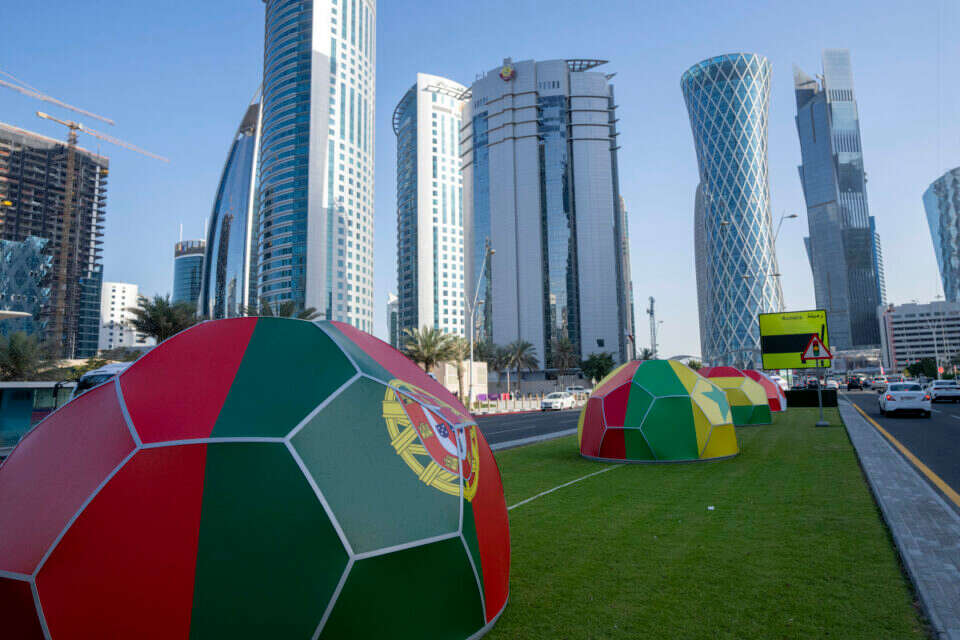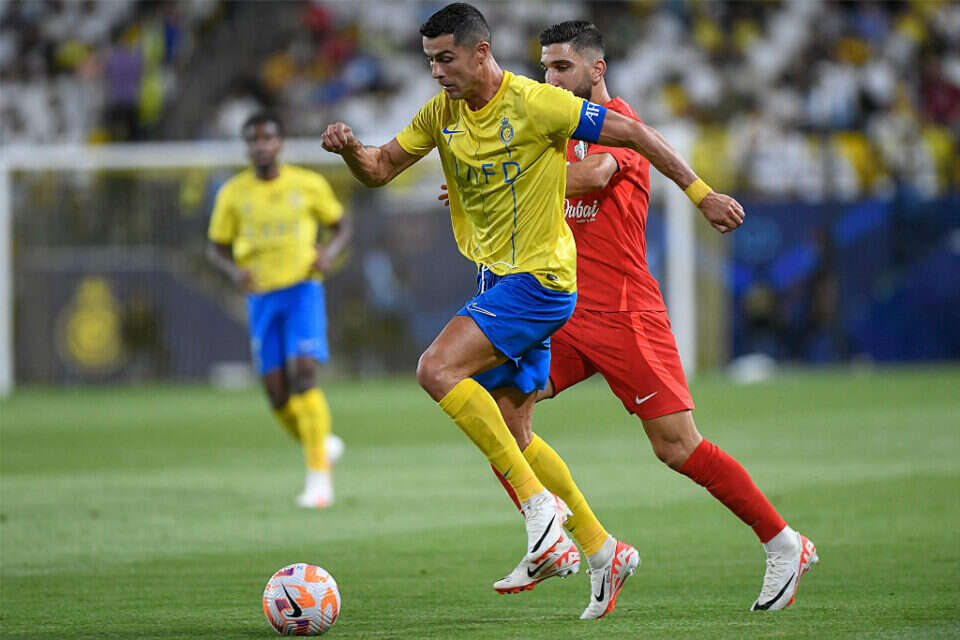In a few hours the opening whistle will sound, and the entire global village will gather for a month around the virtual tribal bonfire of a demonstration that is all about unity and identification, apparently, with the set of values that bridge the difference, the unique and the different in our world.
My 18th World Cup.
Prof. Ben-Zvi as a commentator in the mythological program "Songs and Gates", photo: None
These values should create one common denominator for all, based on aesthetics, determination, fair competitiveness and the desire to cross the limits and limitations of human ability.
However, this idyllic and romantic shell, which aims to obscure all the flawed and dark aspects of international existence, was in practice time and again nothing more than an artificial and superficial coating, which failed to hide and eliminate these dark sides.
Many of the countries that have hosted and will host this huge event, have turned it from a pure sporting event into a lever for the promotion of foreign interests at the hands of tyrannical and oppressive regimes - among other things, to achieve legitimacy and broad international recognition and to promote economic-business goals.
Thus, for example, the Italian dictator Benito Mussolini used the second World Cup, which was held in his country in the summer of 1934, for an extravagant and glittering show designed to give him and his fascist regime prestige and reputation in the West.
Mussolini's visit to Tripoli 1937, photo: courtesy of the World Organization of Libyan Jews
not the first time
The 1978 games in Argentina provided an equally bleak picture, of turning the World Cup into a show of support and external legitimacy for a dictatorial and murderous regime.
The tournament was held during the reign of the military junta led by General Jorge Videla, and was a complete and painful antithesis to all the universal values in whose name the World Cup games were founded.
Not only did Argentina pave its way to glory through a flagrant violation of the essence of sportsmanship - when it literally bought its decisive game against Peru with a goal difference that advanced it to the next stage of the games - but the final match itself, held in Buenos Aires between the hosts and the Dutch magic team, embodied In it human tragedy and unimaginable cruelty.
General Videla on the podium at the 78 World Cup, photo: GettyImages
Roars of joy alongside cries of pain
The game took place at the "River Plate" stadium, less than one kilometer from the training facility of the Naval Academy - where thousands of critics of the regime were tortured, murdered and disappeared at the same time.
No one disagrees that the roars of the 71,000 crowds present at the game - next to General Videla standing on the podium, with the multitude of medals and decorations he awarded himself - completely drowned out the cries of the unfortunate victims.
The same things, with different nuances, are also said about the 2018 World Cup that took place with great pomp and splendor in Putin's Russia.
This, about four years after Moscow's invasion of the Crimean peninsula and in the midst of the merciless air campaign conducted by the Kremlin on bloody Syrian soil, to ensure Bashar al-Assad's victory in the civil war.
Thus, in one fell swoop, the Russian ruler was forgiven for his mass violations of human rights, persecution and murder of his opponents, and his violation of the rights of the LGBT community. He received wide international recognition and a pilgrimage of leaders from the Western world, who honored him and his regime with their presence.
Macron and Putin at the 2018 World Cup final,
The euphoria is stronger than anything
Today, when the curtain rises on the World Cup in Qatar, things are not fundamentally different.
The display of commercialized pyrotechnics and the worship of the branded stars, which will be held in luxurious and modern stadiums built with the sweat and blood of foreign workers, are supposed to hide one basic fact: behind the displayed ostentation and so-called tolerance, there is a regime that systematically violates human rights in general and the rights of the LGBT community in particular, and generously subsidizes activities of extremist terrorist organizations throughout the Middle East.
This is a government that paved its way to hosting the World Cup in crooked and corrupt ways, solely because of its extreme wealth, and not because of the deep-rooted sporting heritage of the host country.
On the other hand, however deep they may be, these shadows and sediments do nothing to minimize or dim the dramas, tragedies, moments of euphoria and magic that have been burned into the collective memory since the World Cup came onto the stage of international sports.
Thus, among other things, we cannot forget the ascension of the genius 17-year-old Pele, who became a star through the 1958 World Cup when he led the Brazilian team to win the cup, in an amazing display of supreme technique.
Pele scores against France in the '58 World Cup, photo: GettyImages
Much more than a victory
Even the collective trauma that befell the Brazilian people in 1950 - whose national team was unexpectedly defeated by Uruguay, in the mythical final held in front of 200,000 spectators at the Marcana stadium in Rio de Janeiro - has not yet faded into the abyss of femininity.
In the same way, the memory of the dramatic final match in Bern in 1954, in which the West German team stunned the wonder team of Hungary, whose superstars included the legendary Ferenc Puskas, Sandor Kosic and Zoltan Cibor, has not faded.
For Germany, which was divided, defeated, assigned and (rightly) ostracized from the family of nations, due to the barbaric crimes of the Third Reich, this victory went beyond its narrow sporting meaning: the "Miracle of Bern" soon became a consciousness-forming event for the Federal Republic, giving it a sense of renewal and restoration of identity National, less than a decade after the collapse of the Nazi empire of murder.
We can only regret that this feeling was not accompanied - at least in the first years and decades after the 1954 World Cup - by a parallel process of real and poignant internal soul-searching of the German people, for their crimes and identification with the Nazi regime.
The players of Germany and Hungary in the '54 World Cup, photo: AFP
were we wrong
We will fix it!
If you found an error in the article, we would appreciate it if you shared it with us






